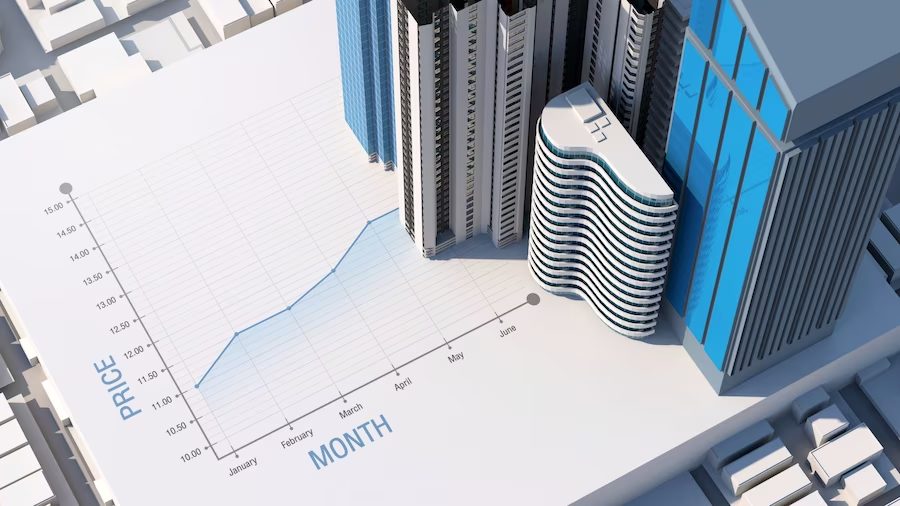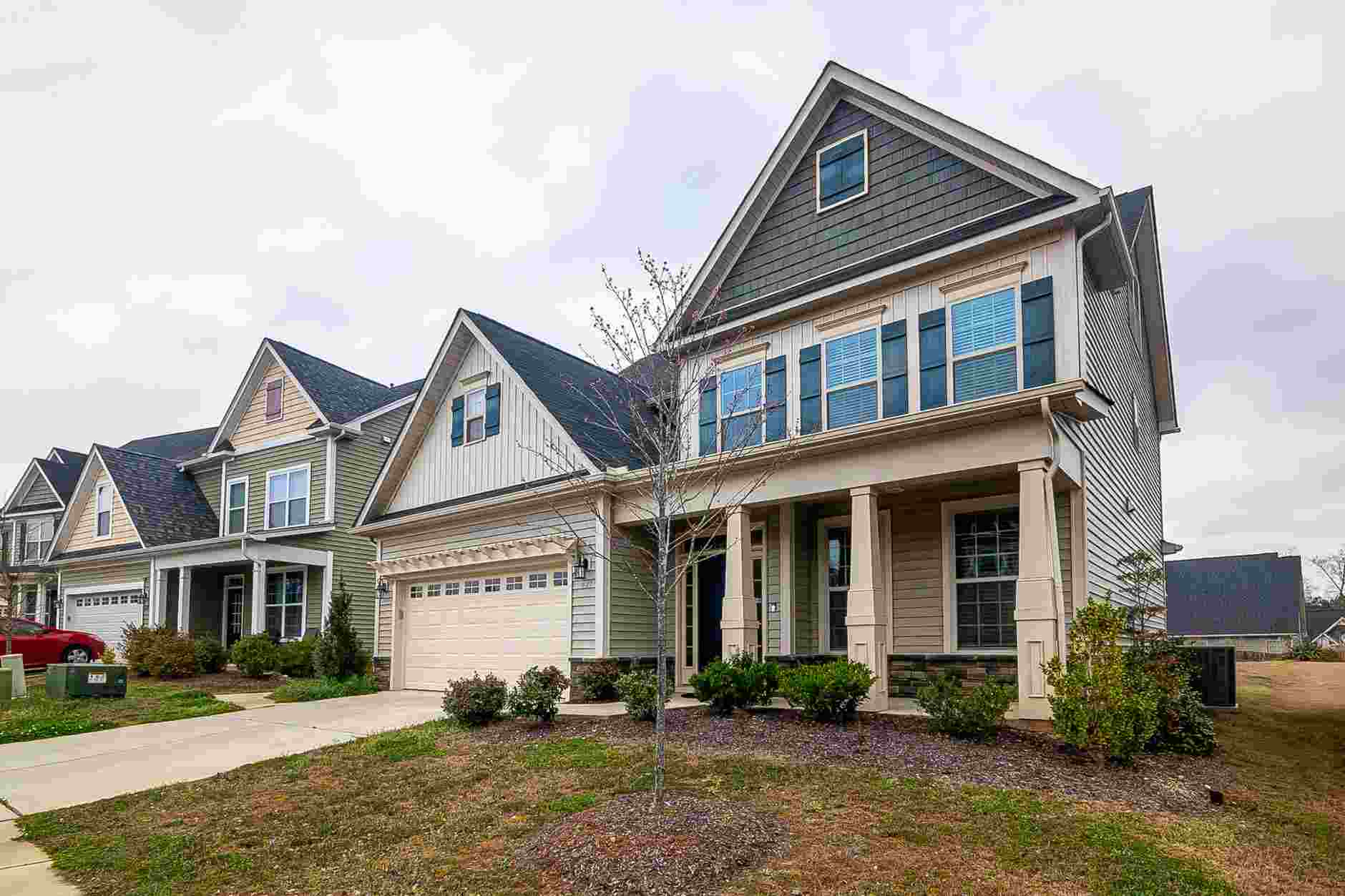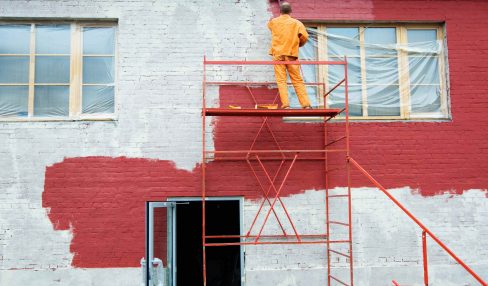Beginner’s Guide To Investing In Property Of Singapore
09 February 2023
6 Mins Read

toc impalement
Property investment in Singapore has proved to be lucrative throughout the years.
In fact, HDB resale flat transactions are estimated to grow by 24,000 to 26,000, with up to a 5% increase in resale flat prices in 2023. On top of that, property investments will also diversify your existing investment portfolio.
But, starting your journey, let’s take a look at the advantages as well as the pitfalls of property investing.
Pros And Cons Of Investing In Property In Singapore
Investing in real estate remains the top investment option for many Singaporeans. For one, property investors don’t have to worry about short-term fluctuations. However, you will most likely need financial aid to invest in Singapore property.
As such, while real estate investments seem less risky than other forms of investment, such as stocks, bonds, or mutual funds, there are also pitfalls you need to be aware of.
Pros Of Investing In Real Estate:
- Potential to multiply the money you invested. If the Singapore property value goes up, your return on investment will also increase.
- Lower volatility compared to other forms of investment
- Generate passive rental income. You can choose to rent out your investment property or a room in your property. The rental income can offset your mortgage.
- No capital gains tax when your property appreciates and you sell it for a profit.
- You will have a physical asset.
- You don’t need specialized knowledge to start investing in real estate.
Cons Of Investing In Real Estate:
- The cost of maintenance can eat up your rental income
- Real estate is not as easy and as quick to convert to cash when you need it. Selling a property may take months, depending on the market.
- The value of your Singapore property may decrease. If that happens, you may end up owing more than your property is worth.
- High entry costs, such as realtor’s fee and stamp duty.
How To Gain Money From Investing In Property?

Singapore’s property market attracts investors looking to profit from the country’s booming conditions. But are there other ways to earn a profit from real estate other than becoming a landlord?
Capital Appreciation
Real Estate Capital Appreciation is when the market price of a property increases over time. For instance, you bought an HDB flat at S$600,000 a few years ago. Today, it holds a value of S$900,000. The Capital Appreciation of the property is said to be S$300,000.
If you sell the property at a higher price than its original purchase price, you will earn a profit known as Capital Gains through Capital Appreciation.
Here are some of the factors that impact your Singapore property prices:
Indicative value – this can be obtained by averaging the property prices of similar property transacted within the area
- Property’s address or location
- Zoning
- Property’s land area, space, and number of rooms
- Building age and state
Rental Income
When you buy and rent, you’ll be assuming the role of a landlord. This investment strategy is a long-term commitment. If done right, you can use your Singapore rental income to offset your mortgage payments and still earn a profit. A high rental yield can provide you with a decent passive income from rent alone.
If you don’t have the capital to purchase a new property, you can consider renting out a spare room in your own home. However, make sure you obtain approval from the HDB. Additionally, only bedrooms from 3-room or larger HDB flats can be rented out.
With this investment method, you’ll also need to consider the hidden costs of being a landlord.
- Maintenance costs
- Repair costs – pipes and taps will leak, furniture will get worn out, and equipment is going to break down.
- Troublesome tenants that cause damage to property, furnishings, and equipment
Flipping Investment Properties
With this investment option, you’ll buy a Singapore property, make some improvements, and then sell it at a higher price to earn a profit. The key is speed – you want to sell your newly renovated property as soon as possible.
Here are a few tips for a successful property flip:
- Take advantage of fire sales. Fire sales are situations wherein the property is sold below market value, usually due to forced foreclosure by a bank.
- Flip when the property market is resting or on an upward trend. Don’t flip properties when the prices are going down.
- Consider this investment method when you have cash reserves.
Investment in Real Estate Investment Trust (REIT)
Want to start investing in Singapore real estate but don’t want the hassle? You can consider investing in Real Estate Investment Trusts (REITs).
Investing in REITS means your money is pooled together with other investors. The funds are then used to invest in properties in Singapore or around the world. Different REITs deal in different types of properties:
- Residential
- Office
- Retail
- Hospitality
- Or a mix of properties.
To start investing in REITs, you’ll have to pay a fee for it to be managed by a professional. You can also consider using robo-advisors that offer REITs-based portfolios, such as Syfe.
Tips To Spot Winning Investment Properties
- Good Entry Price: Choose a Singapore property selling at a lower price than its market value.
- Good Long-Term Value: Although the Singapore property is cheap, make sure that it has the potential to increase in value. Look at the location and the trend in property transactions within the area.
- Vicinity And Major Developments: Properties near schools, offices, or other amenities are more likely to sell and increase in value. The development of nearby amenities will also make a property more attractive.
- Visit Property Auctions: You might find fire sales where distressed properties are auctioned off at attractive prices.
How To Start Investing In Property In Singapore?

You don’t need specific specialty knowledge to invest in Singapore real estate. However, there are a few things you need to know about:
- Property Tax: This is levied on the annual property value. Plus, the amount of tax chargeable on a property will depend on several factors, such as whether you are an owner-occupier. Visit the IRAS website to find out more.
- Loan-to-Value Ratio (LTV ratio): This determines how much Singapore housing loan you can borrow.
- Total Debt-to-Servicing Ratio (TDSR): Your total debt repayments, including home loans, must not exceed 60% of your gross monthly income.
- Seller’s Stamp Duty (SSD): This is a duty payable if you sell a residential property within 3 years of buying it.
- Additional Buyer’s Stamp Duty (ABSD): This is a duty payable if you want to buy additional residential property while still owning one in Singapore.
How Much Capital Do You Need To Start Investing in Property?
Consider this example: A one-room apartment in Le Regal in Geylang is selling for as low as S$600,000.
Let’s assume that Mr. Kim is a Singaporean and looking to buy his 2nd residential property. His first property is fully paid, and they don’t have any outstanding debt.
| Property selling price | S$600,000 |
| ABSD | 12% |
| LTV ratio | 75% since this is Mr. Kim’s only mortgage |
| Downpayment | S$168,000 (payable via cash, CPF, or a mix of both) |
| Real estate agent fee | S$1,000 |
| Initial capital | S$169,000 |
In the best-case scenario. You’ll need approximately S$169,000 in capital.
Closing
Singapore real estate is a good investment, especially if you have a cash reserve. And even if you don’t have enough capital, you can start by renting out a spare bedroom on your own property.
Another option is to invest in REITs since it is professionally managed, easy to buy and sell units, and much more affordable than buying an entire property.
Key Takeaways:
- One of the most significant benefits of real estate investment is the potential to multiply the money you invested.
- If the price of the property goes up, your return on investment will also increase.
- One of the most common real estate investment methods is buy-and-rent. However, being a landlord also comes with hidden costs
- Another option is to invest in REITs. REITs involve investing in real estate properties, and the revenues generated from these assets will be distributed to REIT unit holders.
Read Also:


















Comments Are Closed For This Article